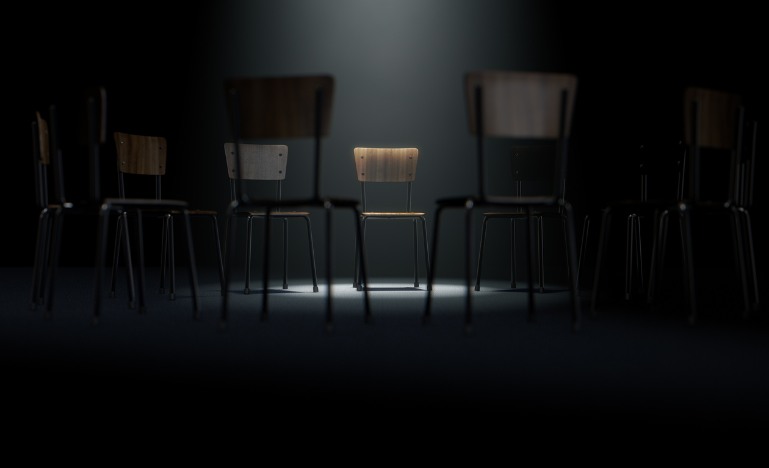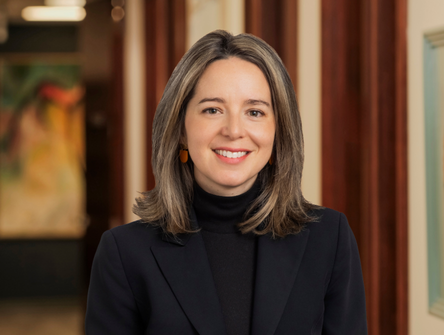Getting sober without stigma
International Lawyers in Alcoholics Anonymous is a bridge for lawyers and judges to seek help among peers, without worrying about running into someone they’ve prosecuted, defended or jailed

Michèle S. started drinking when she was 12.
“It has to do with not being able to cope with whatever pain you’re going through,” says the Calgary consultant and former lawyer, who asked that only her last initial be used as per Alcoholics Anonymous protocol.
She continued to drink through law school and for the next two decades of intense work in a profession with startling rates of alcoholism.
“It’s the solution to being more fun. It’s the solution to not feeling lonely,” she says. “It’s the solution to fitting in.”
At least it was until the day she woke up and realized it wasn’t.
“It’s a moment of grace, a moment of clarity that happens when you say: ‘Wow. I guess I’ve got to stop or it’s going to kill me.’”
She went to an AA meeting and has been sober for the last 30 years.
Drawing on her own experience, she’s now helping organize a conference Oct. 3 to 5 in Banff for International Lawyers in Alcoholics Anonymous (ILAA).
The global group includes chapters in British Columbia, Alberta, Manitoba, Ontario and the United States. It’s a bridge for lawyers and judges to start AA among peers before heading to mainstream meetings where they could run into someone they’ve prosecuted, defended or jailed.
The Calgary chapter alone has about 50 members who attend meetings, and another 25 are registered.
“It’s happened to me, where I’ve gone to a new meeting and there’s a client,” says Andy C., a retired lawyer and head of ILAA’s board of trustees.
“They’re shocked to see me, and I’m shocked to see them, but we both understand why we’re there.”
He says lawyers who drink often have an overwhelming need to control just about everything, along with a deep fear of admitting they can’t. It’s part of why the hard-working, hard-partying stereotype is alive and well.
“The tone is set at the top, so senior partners often inadvertently foster this meme that started in law school.”
A problem across the profession
A 2022 national wellness study led by Dr. Nathalie Cadieux of Université de Sherbrooke, funded by the Federation of Law Societies of Canada and the Canadian Bar Association, asked legal professionals about their drinking.
It found that 14.1 per cent of women who responded and 17.5 per cent of men described “hazardous or harmful” alcohol use. Another 4.3 per cent of women and 7 per cent of men said they have a “high likelihood” of alcohol dependence.
Michèle says anyone who thinks they might have a problem with booze probably does. However, getting help can be daunting in a culture where unsustainable schedules are rewarded and acute stress is the norm.
“We’re dealing with a lot of pressures when we’re dealing with lawyers – a lot of stigma,” she says.
“You don’t ever want to be anything but perfect. Your work’s got to be perfect. Why else would they be working 12, 16, 18 hours a day? It certainly sets up conditions for success for alcoholism.”
Andy has been sober since 1977.
“The problems I was experiencing were piling up: car accidents, embarrassing episodes, blackouts.”
He started attending AA in his third year of law school at the University of Toronto. He got a sponsor and made lifelong friends, which led to “an enormously satisfying, very productive professional and personal life.”
He has since supported hundreds of others, from law students and junior associates to high-ranking judges.
Andy says young lawyers should never presume that clients would rather deal with someone who drinks with them. In fact, an Alberta businessman once took him aside and said he and several others sought his legal advice because he didn’t drink.
Signs of struggle should also not be brushed off.
“I’ve been a managing partner in a mid-sized law firm, and it’s so easy to ignore dysfunctional behaviours when billings are good and things seem to be going well,” he says.
Looking the other way allows the problem “to grow and grow and grow.”
And while relapse is “depressingly” common, the AA door is always open.
“We welcome them back with enthusiasm and love,” Andy says.
The dread of being judged
Toronto psychotherapist Doron Gold, a former family lawyer and civil litigator, says the sheer dependence on alcohol can be a major hurdle to treatment or even recognizing addiction.
He describes drinking as a maladaptive coping mechanism that can be tough to imagine giving up. The dread of being judged is another stumbling block for lawyers.
“They’re scared of being found out.”
Some of his clients have missed work or moved court dates because they can’t function, while others show up because their relationships are in trouble.
Although there’s increased awareness of the high rates of alcoholism within the profession, Gold says legal gatherings with open bars and cocktail evenings are still prevalent.
“I know people who go to those conferences at least as much for the hospitality room as they do for the conference.”
He believes a “top-line solution” to the problem would include more humane work-life expectations that focus on excellence rather than unattainable perfection.
“Because perfect doesn’t exist, you’re dealing with a cohort of people who are constantly feeling not good enough.”
Gold would also like to see more law societies use alternate disciplinary streams that consider mental health issues and substance use as mitigating factors.
“They should not be feeding the stigma by being punitive in their investigations and discipline processes.”
Filling a void
Derek LaCroix, KC, is executive director of the Lawyers Assistance Program of B.C. He says most of the people he sees have lost their sense of meaning in the practice of law.
“They go in idealistically or they think: ‘I’m going to help people.’ But after a while, it’s become a business. ‘How much did I make? How much did I bill?’
Alcoholism and drugs numb it or fill that hole until they don't.
“Step one is admitting I’m powerless over alcohol and my life’s unmanageable,” he says. “Well, that’s hard – just getting to that.”
LaCroix believes the addiction stigma is even harsher for women, who learn to hide. While a man behaving badly may be frowned upon, for a woman, it’s “scandalous.” It’s among the reasons he wants to change the culture of the legal profession.
He got sober in 1986 when he was 37, with help from AA after years spent trying to go it alone. He was pleasantly surprised at the response.
“It wasn’t a negative thing. In fact, it was positive. People were like, ‘Wow, it’s amazing what you’ve done.’”
Recovery stories are vital sources of hope, and LaCroix urges more senior lawyers, including judges, to openly share them.
“Even though there’s this culture and the fear that everybody’s going to judge you harshly, it’s not generally the fact,” he says.
“Most lawyers kind of look up to people who get help and change.”


